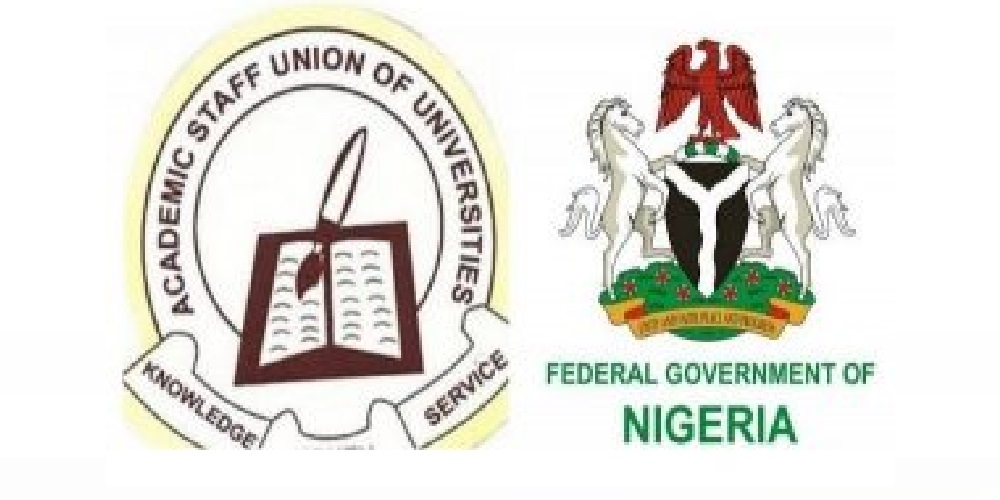News
Minister, ASUU to meet Monday over strike threat

The Federal Government has scheduled a meeting with Academic Staff Union of Universities (ASUU) to address the demands of the varsity teachers, Education Minister Prof Tahir Mamman, has said.
He spoke yesterday on a television programme in response to ASUU’s 21-day ultimatum for the government to revisit the controversial 2009 agreement or the varsity lecturers will down tools.
The union handed down the ultimatum after its National Executive Council meeting at the University of Ibadan last week.
During the programme, the minister confirmed that the government had received the notice of strike from the union leadership and assured that the government was working to prevent another strike in the university system.
According to Prof Mamman, the meeting will look at the demands of the union and fashion out ways to meet them in order to avoid another industrial action.
He said: “We got a correspondence of notice of strike from ASUU on Monday. We met yesterday to review those issues and we are going to be meeting with ASUU on those issues.
“Some of the issues are historic in nature; when you talk about 2009 agreement. This is something that dates back to almost 1981 when they started.
“We have been having a series of conversations with the leadership of ASUU on the issues affecting the university system so that we can, together, address all their concerns.
“The President (Bola Ahmed Tinubu) is quite interested in issues about the progress of academic activities and his desire to have stability and lack of disruption in that sector so that the sector can contribute meaningfully to the academic and manpower development of the country and provide a suitable environment for partnerships with institutions.
“I share with ASUU their vision for a university system but the issue is always the approach. Government will not be able to address every concern at the same time because of other competing needs. That’s where we are.
“I believe we have what it takes to address the issues within three weeks and I also believe that ASUU doesn’t want to go on strike.
“It is a quest for us to be pragmatic and show understanding with regards to what is doable now, what is doable in the short term and what will require more time to do.
“We are also putting in place a team that will engage ASUU in the aspect of agreement.
“And some of the agencies of government that have responsibilities to fulfill in the issues raised in the ASUU letter we are engaging, we have written to them too. Like the NEEDS Assessment and allowances we are approaching our colleagues in finance. We need to put figures to some of these issues.
“In our last meeting we asked ASUU to provide details so as to facilitate implementation through engagement with our colleagues in finance for implementation”.
Some of the outstanding issues, according to ASUU, included:
•Conclusion of the renegotiation of the FGN/ASUU Agreement based on Nimi Briggs Committee’s draft Agreement of 2021;
•Release of withheld three-and-half months salaries on account of the 2022 strike action;
•Release of unpaid salaries of staff on sabbatical, part-time and adjunct appointments owing to the application of the Integrated Payroll and Personnel Information System (IPPIS);
•Release of outstanding third-party deductions such as check-off dues and cooperative contributions; Funding for revitalisation of public universities (partly captured in 2023 Federal Government’s Budget);
•Earned Academic Allowances (EAA) (partly captured in the 2023 Federal Government’s Budget);
•Proliferation of universities by federal and state governments;
•Implementation of the reports of visitation panels to universities;
•University Transparency and Accountability Solution (UTAS) in place of IPPIS.
News
A Chat with Janet Odio Okolo: A Mother’s Journey Raising a Child with Down Syndrome

News
Hon. Nnamchi Begins Street Lights Deployment In Isi Uzo(Photos)

Honourable Paul Sunday Nnamchi, representing Enugu East/Isi Uzo Federal Constituency in the 10th House of Representatives, has fulfilled his promise to illuminate communities in Isi Uzo Local Government Area.
The lawmaker has just begun the deployment of high-density solar-powered street lights in Ikem Nkwo, marking the beginning of a massive rollout of the street lamps across the communities in Isi Uzo.
This initiative, which started in Enugu East Local Government Area in 2024, aims to support the fight against insecurity in the state which according to him was to add to what Chief Security Officer of Enugu State Barrister Peter Mba had done to secure the state to attracts foreign investments.
The lawmaker expressed concern over banditry attacks, particularly by herdsmen, in some communities within Isi Uzo and Enugu East Local Government Areas in the recent pasts.
He believes that illuminating these areas with high-density street lights would help address the insecurity adding that he was prioritizing border and farming communities in Isi Uzo, where banditry has displaced residents and restricted farming activities.
Communities in Ikem, Eha-Amufu in Isi Uzo which borders Enugu and Benue State and Ugwogo-Nike in Enugu East have been vulnerable to these attacks due to their strategic locations.
News
May Day: Kalu Hails Workers, Applauds Their Role in Nation Building

By Gloria Ikibah
Deputy Speaker of the House of Representatives, Rep. Benjamin Kalu, has extended warm wishes to Nigerian workers as the country marks the 2025 edition of International Workers’ Day.
Kalu praised workers across various sectors for their commitment and resilience, describing them as the engine that keeps the nation moving. He acknowledged their sacrifices and unrelenting drive, especially during tough economic times.
In his message, he highlighted the efforts of the current administration under President Bola Tinubu to improve the welfare of public servants. He referenced the National Assembly’s prompt backing of the new minimum wage as a sign of the government’s seriousness about workers’ wellbeing.
The Deputy Speaker appealed for continued patience and understanding from Nigerians, noting that the ongoing economic reforms, while challenging, are designed to bring long-term relief and prosperity.
Kalu also called for unity, and said the country can only overcome its present difficulties if citizens and leaders work together in good faith.
He therefore urged workers to keep the faith and remain steadfast in their duties, assuring them that brighter days are on the horizon, and wished Nigerian workers a peaceful and fulfilling May Day celebration.
-

 Metro20 hours ago
Metro20 hours agoGunmen storm University of Benin teaching hospital, kill doctor
-

 Metro21 hours ago
Metro21 hours agoFCTA destroys 601 motorbikes over violations
-

 News12 hours ago
News12 hours agoAlleged money laundering: EFCC produces Aisha Achimugu in court
-

 News21 hours ago
News21 hours agoJust in: FG declares tomorrow public holiday
-

 News14 hours ago
News14 hours agoJUST IN: Major General Paul Ufuoma Omu Rtd, dies at 84
-

 News14 hours ago
News14 hours agoTinubu hails Dangote’s World Bank appointment
-

 News16 hours ago
News16 hours agoSAD! Professor’s son takes own life inside varsity staff quarters
-

 News20 hours ago
News20 hours agoFull list: FG approves N110bn to rehabilitate medical schools 18 institutions











